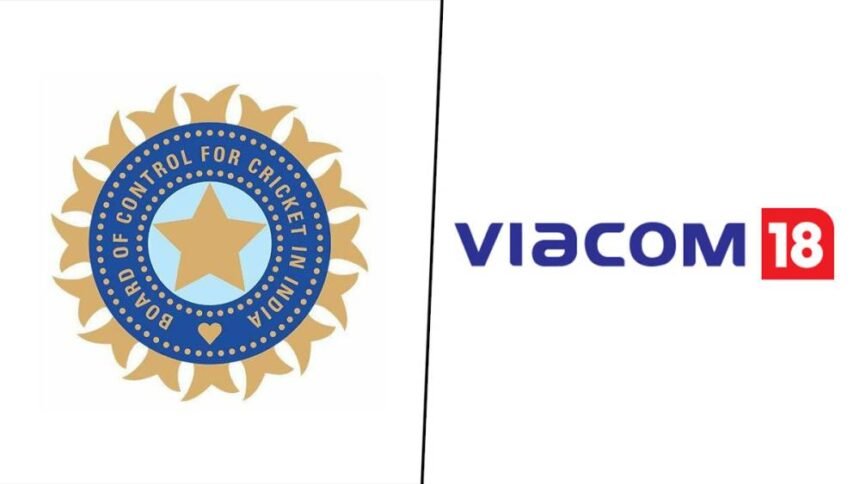Indian cricket will have a new home on the Viacom 18 network for the following five years. In an online auction on Thursday, the media giant, a division of Reliance Industries, obtained the linear and digital rights to the BCCI.
As a result, domestic cricket matches and all international matches involving India played in the nation will now be broadcast on Viacom 18. The network already owns the digital rights to the Indian Premier League (IPL), the most lucrative competition in the world, and it is the exclusive broadcaster of the Women’s Premier League (WPL).
Disney Star and Sony were defeated by Viacom 18, which had the highest bid in both areas, and it paid around Rs 5,963 crore for the rights. The split was Rs. 3,101 billion for the digital platform and Rs. 2,862 billion for linear telecast.
According to the most recent agreement, the cost of each international match throughout the cycle will be Rs 67.75 crore, an increase over the Rs 60 crore that Star India paid the BCCI during the previous cycle. The winning bid last time had a total value of Rs. 6,138 crore, but it included 102 more games than are now on the table.
Some predicted that the winning price per match would be around Rs 85 crore, but it actually ended up being much lower, up 11% from the previous round.
“I am incredibly happy and immensely proud to see the BCCI brand develop so significantly. According to a press release from the BCCI, secretary Jay Shah, “Today’s e-auction has moved BCCI into the upper echelons of per-match media rights valuation, marking a major milestone in our path.
For Rs 26,000 crore, Viacom 18 purchased the internet rights to the IPL last year. Up until March 31, 2028, the value of an international cricket match played in India is significantly lower than that of an IPL match (about 118 crore), suggesting that, at least in the perspective of broadcasters and bidders, the franchise league dominates the sport of international cricket.
The discrepancy can be attributable to a small number of high-profile series (such as those against England and Australia) drawing sufficient attention. The indefinite suspension of bilateral cricket with Pakistan makes games against other nations less exciting to the casual cricket fan. Although they don’t necessarily watch the events all day, they do follow the matches, which doesn’t do much for the advertising money.
The shorter duration and advantageous time slots for the matches could also be used to justify the greater price per match of the IPL.
Aiming for superiority
Viacom 18 is now the key player in Indian cricket broadcasting as a result of recent developments. The dynamics of digital sports broadcasting in the nation have undoubtedly changed as a result of the Jio network. Disney Star, which is now airing the Asia Cup and also has the linear rights to the IPL, will also be airing the forthcoming 50-over World Cup because it also has the rights to the ICC events in the existing cycle.
The broadcasting agreement includes 36T20Is, 27ODIs, and 25 Tests.
The auction was split into two categories: digital for the Indian subcontinent combined with TV and digital rights for the rest of the globe (base price Rs 25 crore), and TV for the Indian subcontinent solely (base price Rs 20 crore).
This was a new development in Viacom 18’s involvement with Indian cricket. For a total of Rs 23,758 crore, they acquired digital rights for the Indian subcontinent as well as TV and digital rights for three other markets: Australia + New Zealand, the UK, and South Africa. By offering Rs 951 crore for the years 2023–27, they then outbid Disney Star for the global media rights to the WPL.
The events of Thursday are perhaps another indication of India’s growing marketing influence in the game. The largest source of money for the individual boards, aside from the high value of matches in India, comes from tours by India abroad. The majority of ICC sponsors are either Indian businesses or businesses that conduct the majority of their business in India. No matter where a major event is held, India matches are the most anticipated.
As a side note, the eye-watering sums that the BCCI makes from the sale of its broadcast rights may provide an explanation for why the paying stadium patron is not at the forefront of its worries. There is still much room for improvement regarding the ground’s amenities and ticket sales.




































